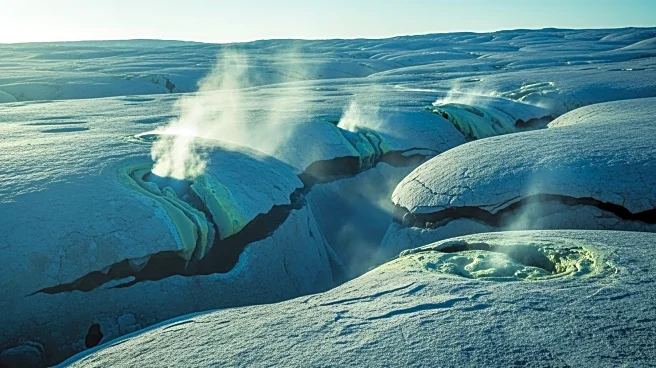What's Happening?
Hamas is reportedly planning to play a significant role in the future governance of Gaza, despite a ceasefire agreement. According to reports, Hamas has been selecting individuals who align with its principles to fill half of the positions in a technocratic
government expected to take over the Gaza Strip. This development comes amid a backdrop of emerging anti-Hamas armed groups, indicating a potential collapse of Hamas's control over territorial security. The situation highlights the ongoing complexities in the region, as various factions vie for influence and control.
Why It's Important?
The involvement of Hamas in Gaza's future government is significant as it underscores the group's enduring influence in the region, despite international efforts to broker peace and stability. This move could impact the political landscape in Gaza, potentially affecting international relations and aid efforts. The emergence of new armed groups opposing Hamas suggests a volatile security environment, which could lead to further instability. The international community, particularly countries involved in the peace process, may need to reassess their strategies in dealing with the evolving political dynamics in Gaza.
What's Next?
The next steps involve monitoring the formation of the technocratic government and the response from both local and international stakeholders. The international community, including humanitarian organizations, may need to navigate the complexities of providing aid and support in a region with shifting political alliances. Additionally, the potential for increased violence from anti-Hamas groups could necessitate a reevaluation of security measures and peacekeeping efforts in the area.
Beyond the Headlines
The situation in Gaza raises broader questions about governance and legitimacy in conflict zones. The role of non-state actors like Hamas in political processes challenges traditional notions of state sovereignty and international diplomacy. This development could set a precedent for other regions experiencing similar conflicts, where armed groups seek to transition into political roles. The ethical implications of engaging with such entities remain a contentious issue for policymakers and international organizations.
















